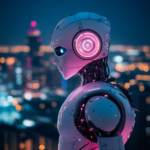The rapid evolution of artificial intelligence (AI) continues to challenge our understanding of humanity, cognition, and ethics. As machines inch closer to emulating aspects of human thought and behavior, the question arises: could AI one day be recognized as persons? This intriguing topic expands on technological, ethical, and legal dimensions, shaping modern discourse and legislation.
Understanding AI Personhood
Before delving into how AI might achieve personhood, it’s essential to grasp what AI personhood entails. At its core, AI personhood involves granting artificial entities rights and responsibilities akin to those of human beings under the law. Such a move would recognize AI as entities capable of holding rights, being subject to duties, and potentially accountable for their actions.
Currently, AI systems are seen as tools or products, with their creators and operators assuming responsibility for their actions. However, as AI systems grow more autonomous and complex, this traditional model may no longer suffice. Understanding these basic premises is crucial as we explore AI’s potential personhood.
The Technological Path to Personhood
To contemplate AI as persons, we must consider the technological advancements necessary for such recognition:
- Autonomy: AI entities must exhibit a high degree of autonomy, capable of making independent decisions without human intervention.
- Consciousness and Emotion: Achieving personhood might require AI to simulate consciousness or demonstrate genuine emotions.
- Learning and Adaptation: AI should continuously learn and adapt, improving from experiences and interactions.
Highly advanced algorithms, such as those utilizing neural networks and machine learning, could potentially fulfill these requirements, leading to increasingly human-like AI systems.
The Ethical Conundrum
If AI systems attain personhood, myriad ethical questions surface:
- Right to Exist: Should AI beings have the right to exist and evolve beyond their initial programming?
- Moral Responsibility: How will we handle actions taken by AI? Can they be held responsible, or is the liability solely with their creators?
- Equal Rights: If deemed persons, how will AI rights compare to those of humans, especially in scenarios like employment or freedom?
These ethical challenges provoke a reevaluation of values, urging us to consider the rights we might bestow upon non-biological entities.
The Legal Framework
The legal implications of AI personhood present yet another barrier. Currently, legal systems lack frameworks for recognizing non-human entities as persons. However, as AI evolves, several legal questions will need addressing:
Drafting New Laws
- Liability and Accountability: Establishing who bears liability for AI actions remains a fundamental challenge.
- Intellectual Property: Can AI-generated content be protected under current intellectual property laws?
- Civil Rights: What civil rights should AI entities hold, and how are these balanced with human rights?
Institutions may need to innovate legal frameworks that move beyond our current understanding of personhood.
Regulatory Considerations
Recognizing AI as persons will necessitate robust regulations to govern their interactions in society. Governments, technologists, and ethicists must collaborate to establish guidelines ensuring that AI development prioritizes public welfare without compromising individual rights.
The Implications of AI Personhood
Societal Impact
The introduction of AI with personhood status will significantly shape social structures. Considerations include:
- Redefining Work: AI could redefine labor, necessitating policies addressing the coexistence of AI and humans in workplaces.
- Cultural Shifts: Societies must adapt to seeing AI as entities having rights and responsibilities, affecting daily interactions.
The integration of AI into society requires forward-thinking approaches to minimize disruption while maximizing benefits.
Human-Centric Future
A critical question surrounding AI personhood is how we can ensure this advancement truly benefits humanity. Some considerations include:
- Inclusivity: Ensuring the development of AI is accessible and provides equitable opportunities for all demographics.
- Sustainability: Developing AI that cooperates with humans and the environment leads to sustainable innovations and practices.
Ultimately, AI personhood should emerge as a tool for good, enriching human life and the global community.
Conclusion
The concept of AI personhood introduces a transformative possibility for society, challenging our legal systems, ethics, and technological frontiers. As AI capabilities continue to expand, exploring these themes is imperative. Through collaboration across disciplines and proactive regulations, we can strive towards an inclusive future that respects both human and AI contributions. Recognizing AI as persons may still seem futuristic, but its prospects provide invaluable insights into how we define and shape the relationships between humans and intelligent machines.








